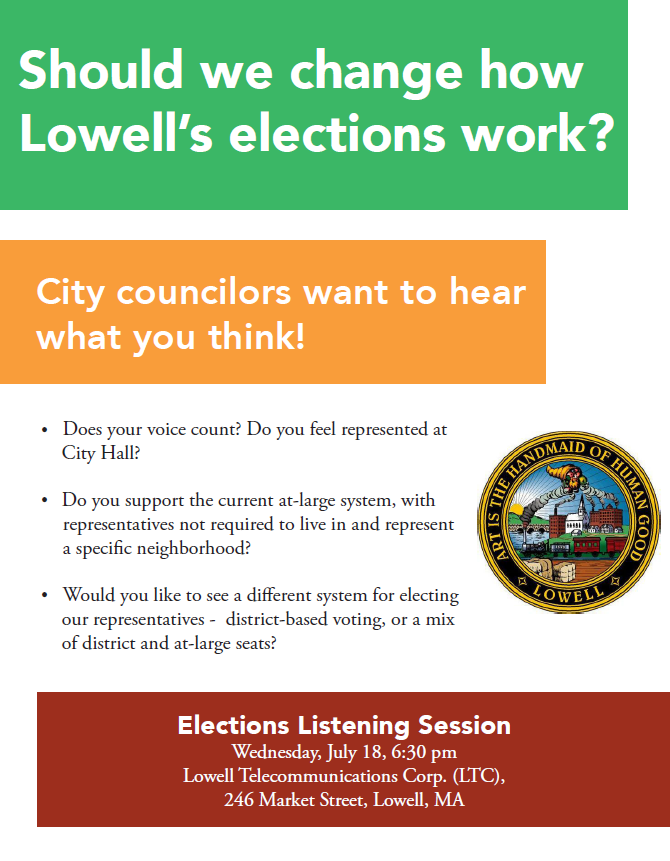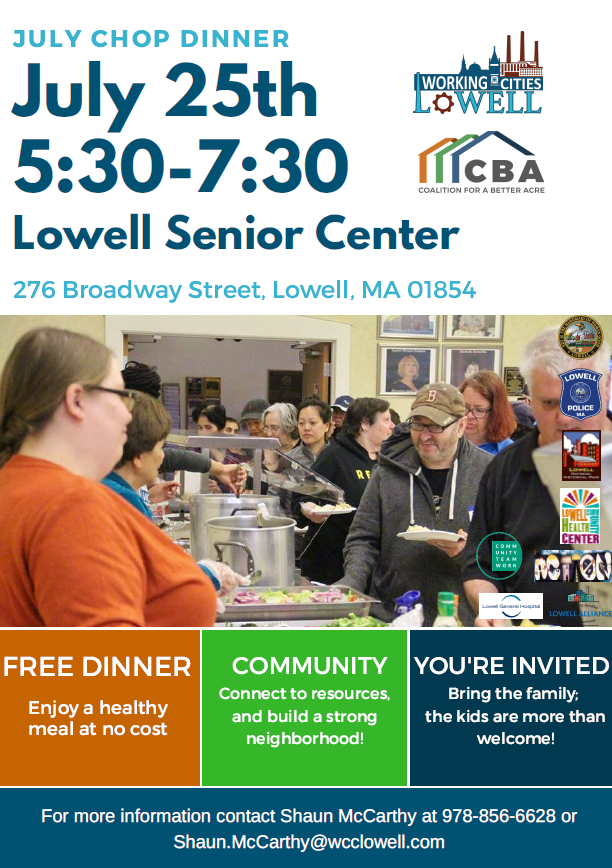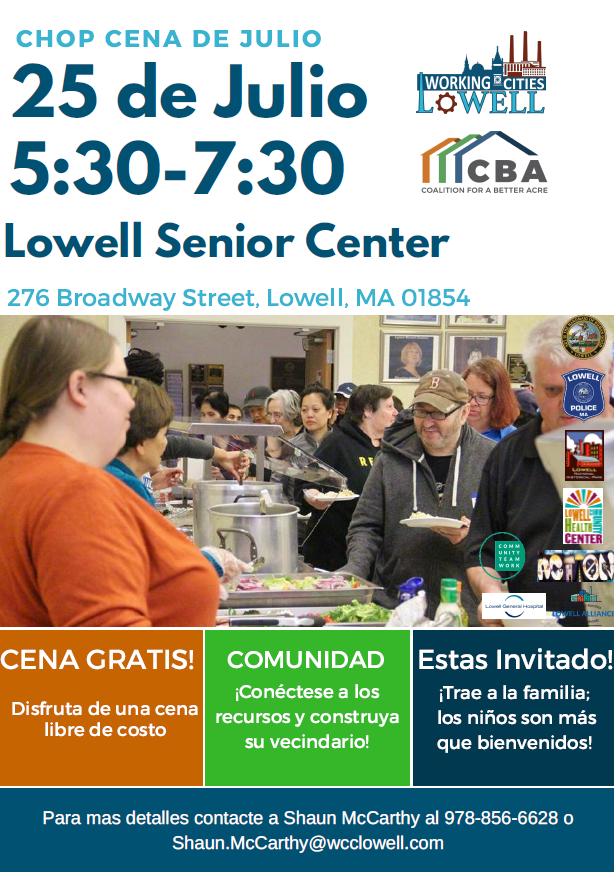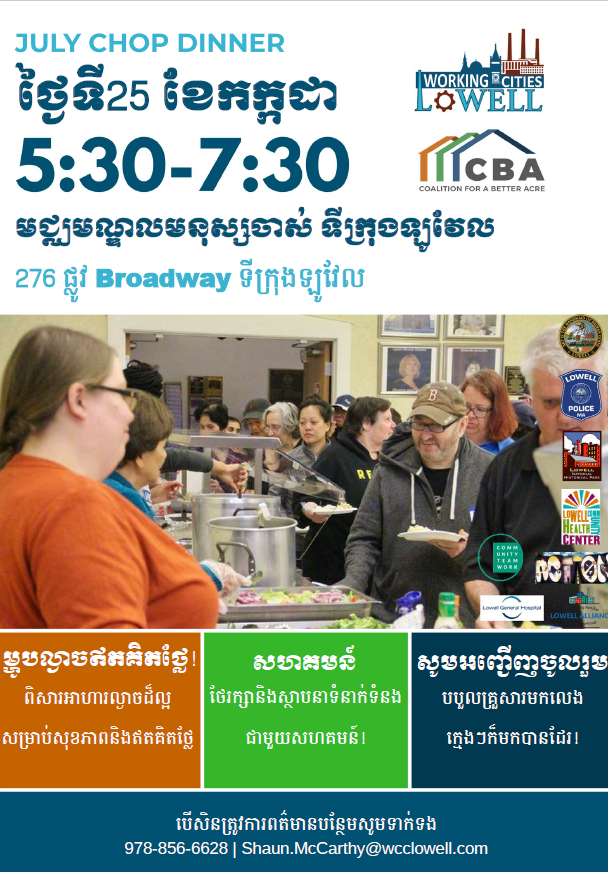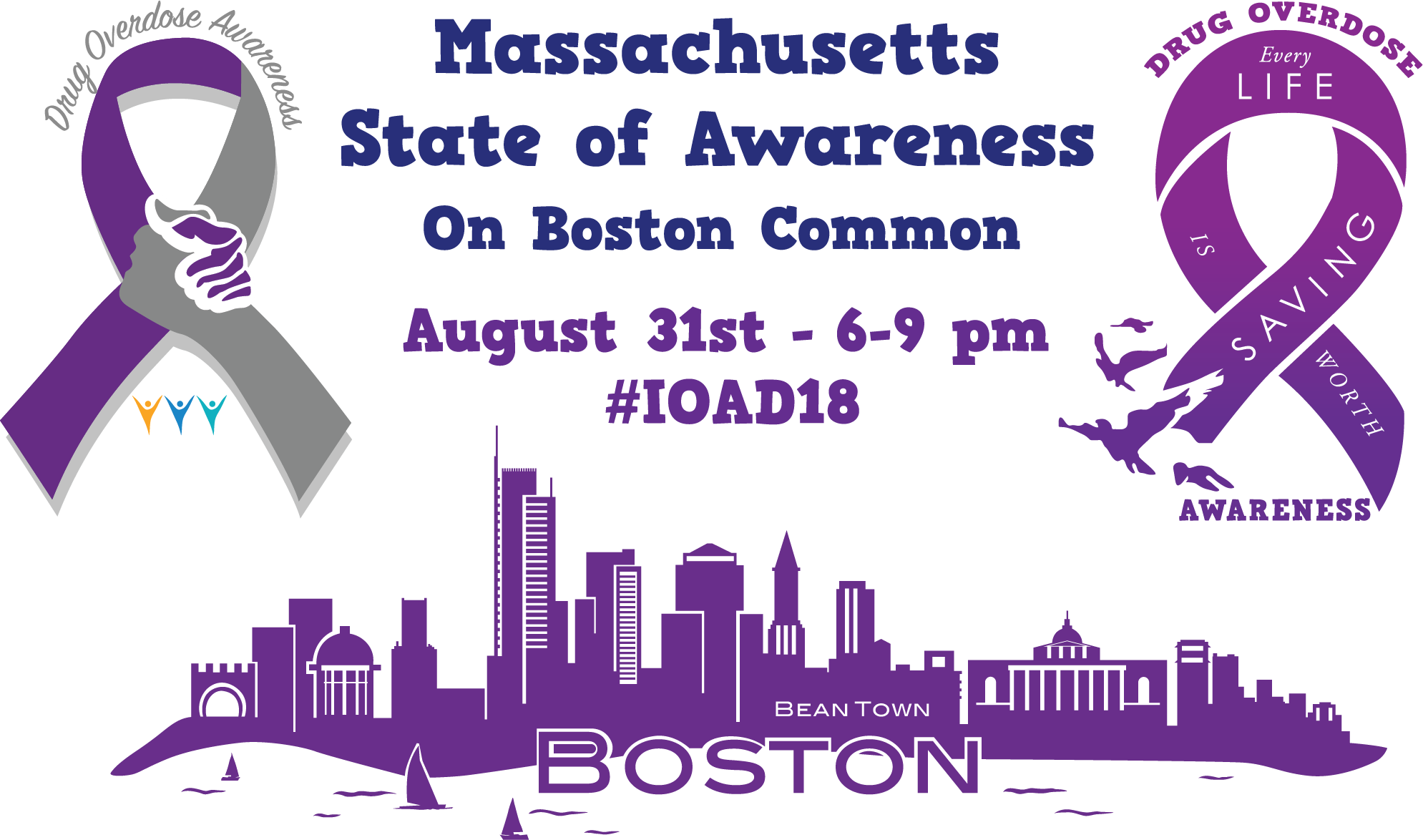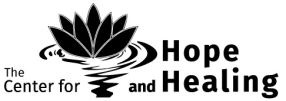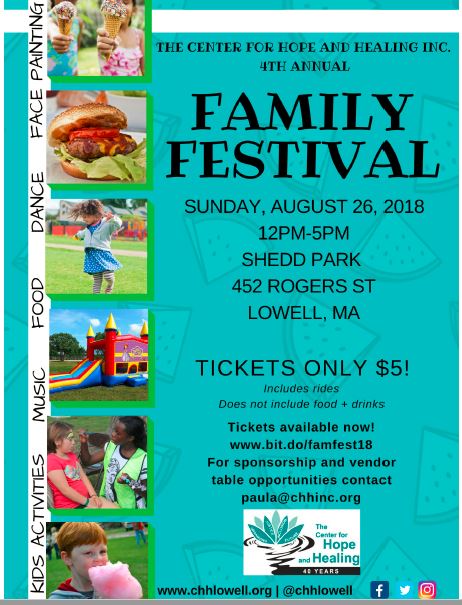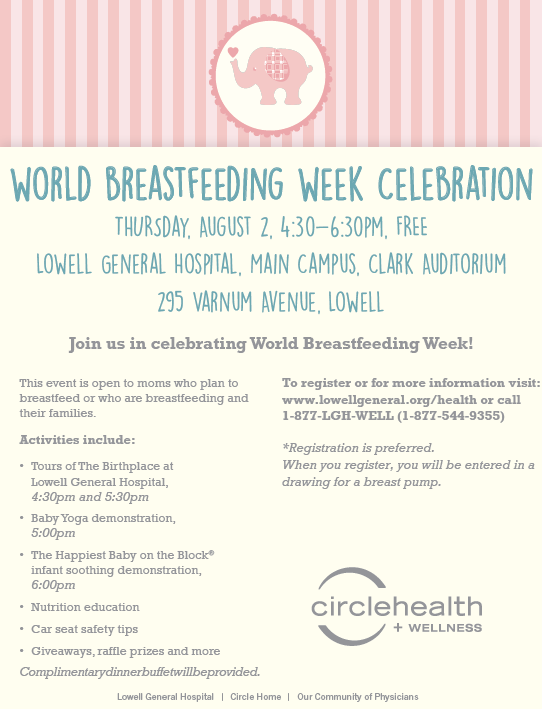Event Categories: All Meetings & Events
July CHOP Dinner
Project LEARN Book Nook Sorting
BooksNooks are mobile book shelves that are located in family-friendly places in Lowell and deliver free (new and gently used) books directly to kids in our community. The shelves are stocked through the generosity of our community partners through book drives and donations. This is where you come in! Project Learn needs volunteers to sort all of these books! Anyone 7 years of age or older is welcome to join in on the fun.
To find out more, please visit www.projectlearninc.org/
To sign up, please visit here.
GLHA Social Determinants of Health Task Force Meeting
MPHA Welcomes Carlene Pavlos – Worcester
The Health Foundation of Central Massachusetts will be graciously hosting an afternoon welcome event for MPHA’s new Executive Director, Carlene Pavlos, on August 8th.
Please join us in beautiful downtown Worcester as we celebrate our inspiring new leader and connect with colleagues and friends from across the state.
The Health Foundation of Central Massachusetts will provide refreshments and validate parking in the Worcester Plaza Garage!
Click here for directions to the event and the parking garage.
“I am thrilled to bring my passion for health equity to MPHA and promise that we will strive every day to make you proud to join us in this work.”
-Carlene Pavlos
Please contact Alexa at apiacenza@mapublichealth.org with any questions. We hope to see you soon!
Jessica Collins
MPHA President
|
|
||||||
Massachusetts State of Awareness
For anyone who is a family or loved one of loss, who would like to include a photo of their loved on in our memorial vigil, please go to: www.massachusettsstateofawareness.org

